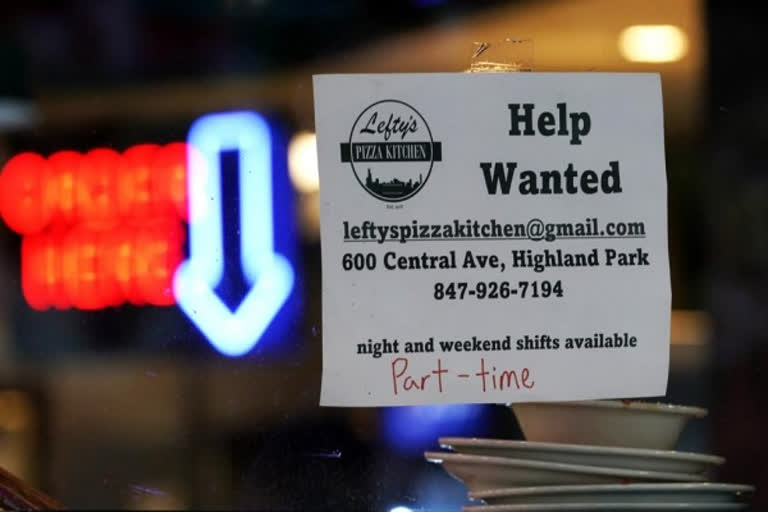Washington:Raging inflation has so scrambled the economy that it's come to this: If Friday's jobs report for August were to show a significant hiring slowdown, the Federal Reserve and even the White House would likely welcome it. The government is expected to report that employers added 300,000 jobs last month, according to a survey of economists by the data provider FactSet.
That would be down from a blockbuster gain of 528,000 in July and an average of about 440,000 over the past three months. The unemployment rate is expected to remain at 3.5 per cent, FactSet says, matching a half-century low. The August jobs report will be issued at 8.30 am Eastern time. A weaker pace of hiring should help moderate wage increases and lift hopes that inflation pressures are starting to ease. That, in turn, would help the Fed make progress toward its goal of conquering high inflation, which is near a four-decade high.
Many companies pass along their higher labour costs to customers through price increases. Conversely, when wages rise more slowly, businesses have less need to raise prices. Chair Jerome Powell and other Fed officials have increasingly stressed their determination to tame inflation even at the cost of damaging the economy.In a major speech in Jackson Hole, Wyoming last week, Powell underscored the Fed's tight focus on curbing inflation and said he was prepared to continue raising short-term interest rates and keep them elevated to achieve that goal.
He warned that the Fed's inflation fight would likely cause pain for Americans in the form of a weaker economy and job losses. The stock market has fallen every day since that speech as fears that the Fed may cause a recession have escalated. Powell also said the job market is clearly out of balance", with demand for workers substantially exceeding the available supply.
Indeed, the government reported this week that the number of available jobs rose in July to a near-record high, after three months of declines. There are roughly two open jobs for every unemployed worker, a sign that many companies are still desperate to hire and may keep raising wages to do so. I don't think the Fed is rooting for a poor jobs report, but they are certainly not rooting for a repeat of July, when hiring accelerated and wage increases were strong, said Gregory Daco, chief economist at Parthenon-EY.
They are going to want to see some moderation. The central bank has raised its short-term rate to a range of 2.25 per cent to 2.5 per cent this year, after the fastest series of increases since it began using its short-term rate to influence the economy in the early 1990s. It has been projected that its key rate will reach a range of 3.25 per cent to 3.5 per cent by year's end.
Those rate hikes have made borrowing and spending steadily more expensive for individuals and businesses. The housing market, in particular, has been weakened by higher loan rates. If Friday's jobs report is another strong one, with substantial hiring and rapid wage growth, the Fed could opt to announce another sizable three-quarter-point hike when it meets later this month, after similar rate increases in June and July.
